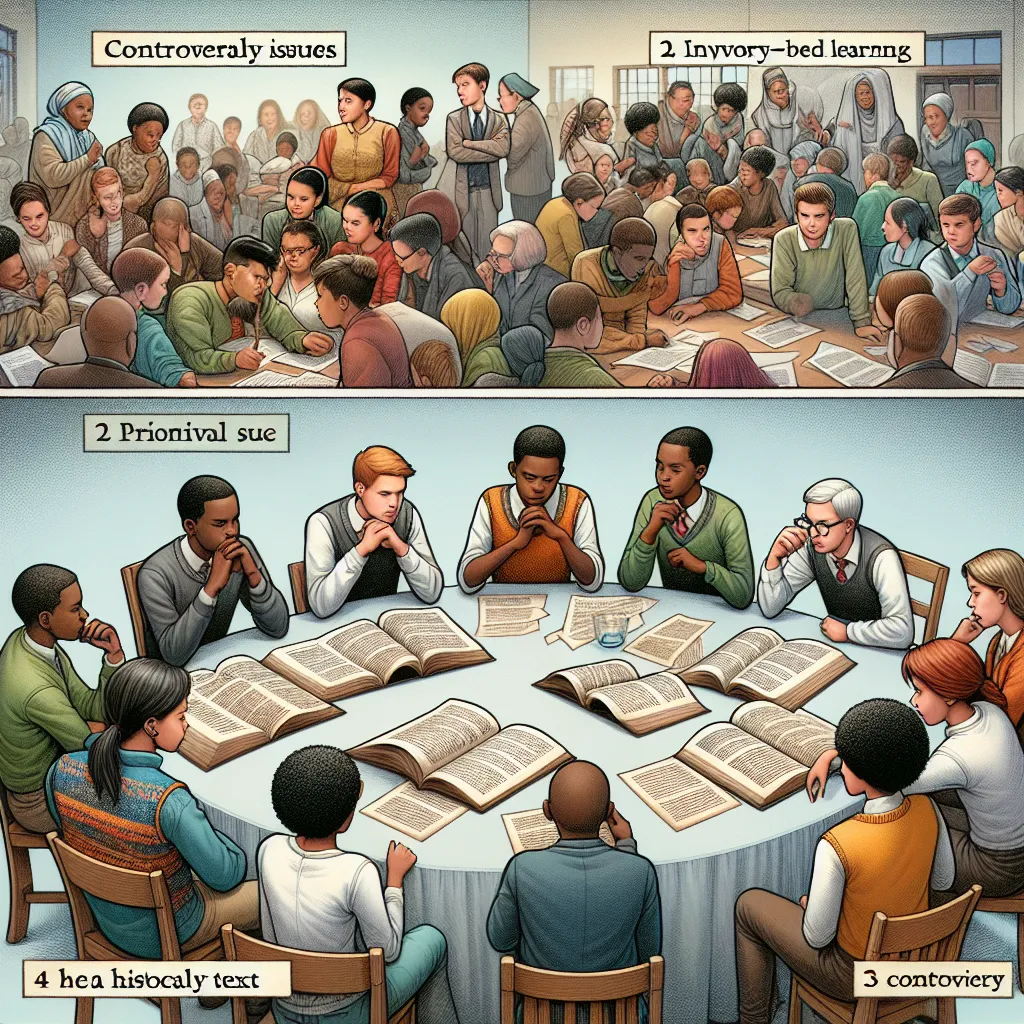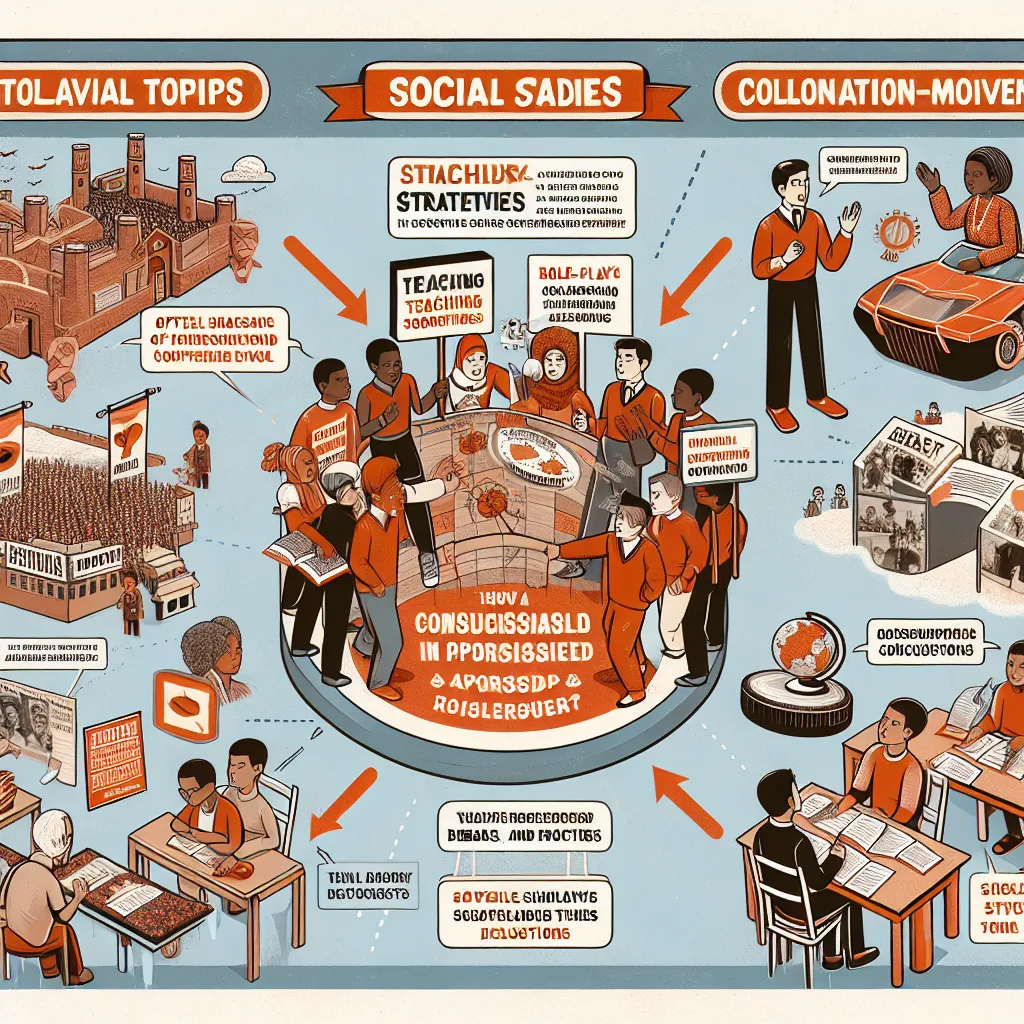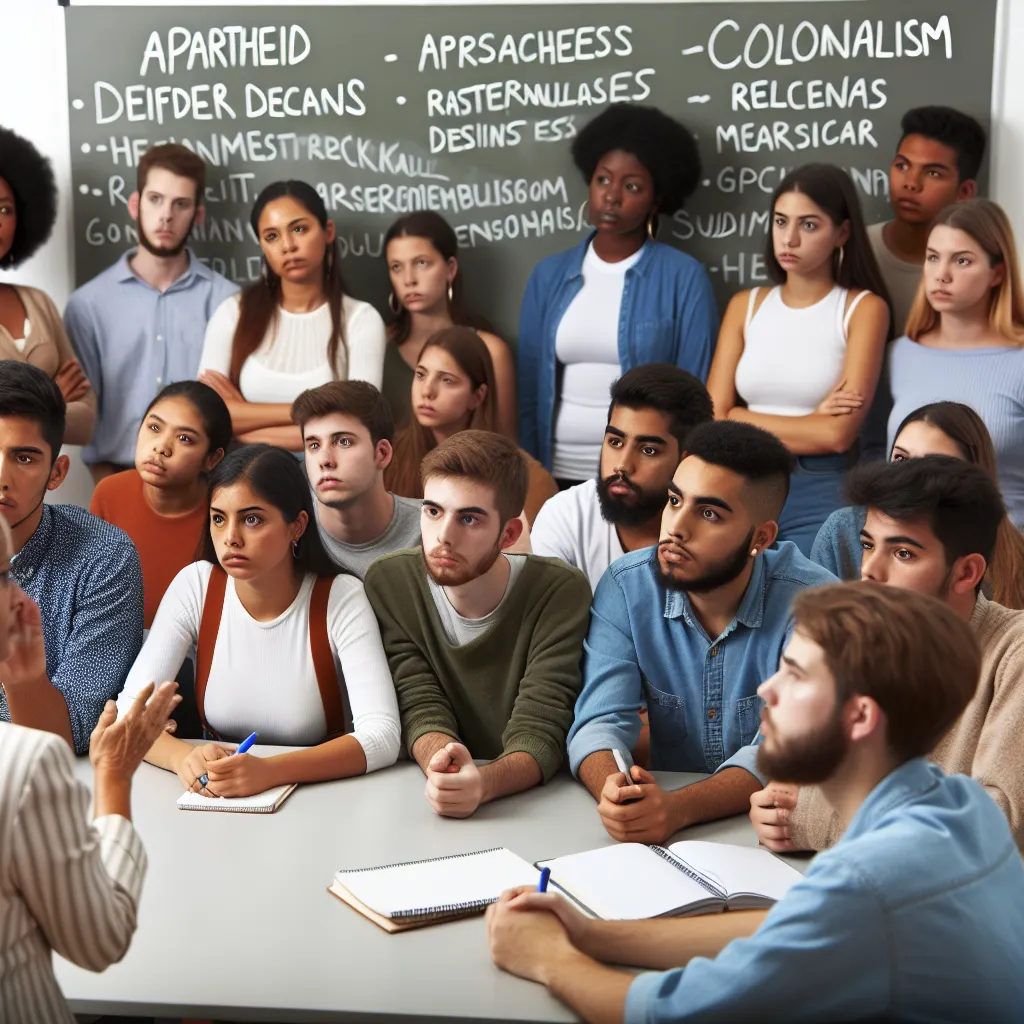Ask AI on The Internet
Question: It is believed that many of the controversial issues arising in history classrooms are rooted in the hidden curriculum manifest in unofficially sanctioned points of view and societal structures; others are directly related to the intended South African curriculum, called the Curriculum Policy Assessment Statements (Wasserman, 2018) In light of the above statement, in an essay of not less than 3 pages critically discuss Teaching Controversial Issues in SS History: Approaches, Challenges, and Educational Outcome. (Include examples of controversial topics from CAPS)
Teaching Controversial Issues in Social Studies (SS) History: Approaches, Challenges, and Educational Outcomes Teaching history, particularly within the context of South Africa, often involves navigating controversial topics. These topics can arise from the hidden curriculum as Wasserman (2018) suggests, involving unofficially sanctioned points of view and societal structures. They can also stem directly from the intended curriculum, as delineated by the Curriculum Policy Assessment Statements (CAPS). This essay will critically discuss various approaches to teaching controversial issues in history, the associated challenges, and the potential educational outcomes. Specific examples of controversial topics from the CAPS history syllabus will be integrated to illustrate these points. ### Approaches to Teaching Controversial Issues #### Inquiry-Based Learning One effective approach to teaching controversial issues is Inquiry-Based Learning (IBL). This pedagogical strategy encourages students to ask questions, conduct research, and engage in discussions. When applied to history, IBL allows students to explore multiple perspectives surrounding a historical event or issue. For example, topics such as apartheid, colonialism, and the Soweto Uprising can be explored through a variety of lenses, enabling students to understand the complex socio-political dynamics at play. #### Discussion-Based Learning Discussion-Based Learning (DBL) is another approach where dialogue is central to learning. Teachers can facilitate debates and discussions that help students articulate their thoughts, listen to differing opinions, and develop critical thinking skills. This method is particularly useful for tackling controversial issues such as land reform and reconciliation post-apartheid, as it promotes a deeper understanding through active engagement. #### Use of Primary Sources Employing primary sources such as letters, speeches, and photographs can provide students with direct insights into historical events. This method allows students to analyze the authenticity and bias of sources, fostering a more nuanced understanding of controversial issues. For example, using Nelson Mandela's speeches and apartheid-era legislation as primary sources can enlighten students about the complexities of the struggle against apartheid. ### Challenges of Teaching Controversial Issues #### Teacher Preparedness One significant challenge is ensuring that teachers are adequately prepared to handle controversial topics sensitively and effectively. Teachers may inadvertently project their biases or struggle to facilitate balanced discussions. Professional development programs focusing on content knowledge and pedagogical strategies can mitigate this issue. #### Classroom Dynamics Classroom dynamics, including the diverse backgrounds of students, can complicate the teaching of controversial issues. South African classrooms are often multicultural, with students holding varied historical perspectives and experiences. This diversity necessitates a careful approach to discussions to avoid alienating any group. #### Curriculum Constraints The CAPS curriculum outlines specific historical content that must be covered, which can sometimes constrain teachers. The need to adhere strictly to the curriculum can limit the time available for in-depth discussions and critical engagement with controversial issues. Additionally, there might be pressure to present a sanitized version of history to avoid conflict, which can result in a superficial understanding of complex topics. ### Educational Outcomes #### Critical Thinking and Analytical Skills One of the most significant educational outcomes of teaching controversial issues is the development of critical thinking and analytical skills. Students learn to evaluate different sources of information, consider various perspectives, and construct well-reasoned arguments. For example, in discussing the legacy of colonialism, students might examine differing viewpoints on economic development and cultural impacts, leading to a more sophisticated understanding of historical consequences. #### Empathy and Ethical Understanding Engaging with controversial issues can also foster empathy and ethical understanding among students. Exploring the human experiences behind historical events enables students to appreciate the complexities of moral and ethical decisions. Topics such as the Truth and Reconciliation Commission offer rich opportunities for students to grapple with questions of justice, forgiveness, and historical accountability. #### Enhanced Civic Engagement Finally, teaching controversial issues can lead to enhanced civic engagement. By understanding historical injustices and societal challenges, students may become more committed to active citizenship and social justice. For instance, discussions on land reform can inspire students to think critically about current policies and their role in shaping a more equitable society. ### Examples of Controversial Topics in CAPS - **Apartheid**: The curriculum covers the policies and impacts of apartheid, requiring students to critically examine the segregation laws and their lasting effects on South African society. - **Colonial Legacy**: Exploring the economic, social, and cultural impacts of colonialism on South Africa, including debates on whether colonialism had any positive effects. - **Land Reform**: Addressing the historical context of land dispossession and contemporary issues related to land restitution and redistribution. - **The Soweto Uprising**: Investigating the causes, events, and outcomes of the 1976 student protests, including differing perspectives on its significance. In conclusion, teaching controversial issues in SS history is a complex but vital task that requires thoughtful approaches, such as inquiry-based learning, discussion-based learning, and the use of primary sources. Despite the challenges, including teacher preparedness, classroom dynamics, and curriculum constraints, the educational outcomes can be profoundly positive. Students can develop critical thinking skills, empathy, ethical understanding, and a commitment to civic engagement. The CAPS curriculum provides a framework for addressing these issues, offering rich opportunities for students to engage with South Africa's complex historical legacy.
Think your answer is better than the AI's? Post it below.
Other Most Relevant Posts:
Question Tags
If you want your question answered by an AI, click here.







Post your own comment: